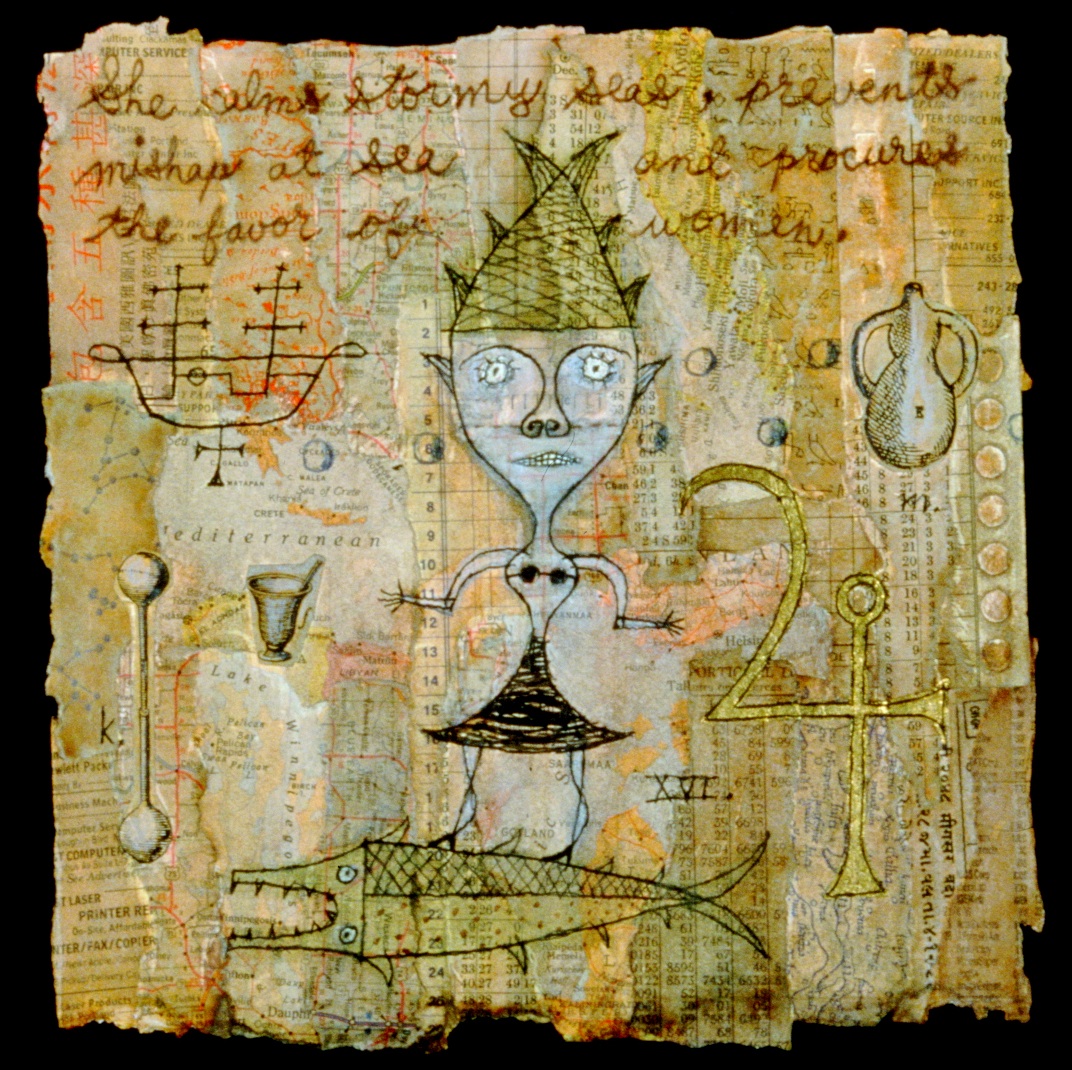| Ketty Nez | Sunday | Monday | Tuesday | Wednesday | Thursday | Friday | Saturday |

Phantom Femme #1 (1998) by David Nez
see more of David's art
|
Scene I Sunday: mountain music Scene II Monday: the cricket's wedding Scene III Tuesday: village dances and the cook of love Scene IV Wednesday: flirting at the farmhouse Scene V Thursday: sitting in a tavern, the Devil decides to get married Scene VI Friday: three wives (at least) Scene VII Saturday: marching to a different drummer Above links are to videos of the concert premiere by the Xanthos Ensemble at Boston University, 1 April 2011.See the staged premiere by the Juventas Ensemble, 5 May 2012, The Calderwood Pavilion at the BCA, Boston.
A spry fortune-telling Roma on her wanderings meets a dashing, murderous outlaw in the Rumelian hinterlands. Their path crosses a mountain village, where they meet a young shepherd, the naive village beauty, and an old epic singer. Through their songs and dances, inspired by what the Roma's tarot cards show, we see surprising stories of the past and future, peopled with characters from other times and places, including even the Devil himself! "Rumelia" is the historic Turkish name for the southern Balkan areas of the Ottoman Empire ("Rumeli" means "land of the Romans"). A musical window into the lives of characters I repeatedly came across, during my research of the music from the different folk traditions throughout this culturally diverse and expansive area, this opera was an exploration of my family tree, which includes Bulgarian, Romanian, Albanian, Vlach, Greek, North Macedonian, Slovenian, Croatian, and Austrian roots. Characters Instrumentation : flute/piccolo, clarinet, violin, cello, piano, percussion
"Nez has scooped a sampling of folk tunes, speared gnarly rhythms, and simmered them into a stringent but satisfying potpourri, spiced with paprika wit and wisdom. . . ." Fred Bouchard, Boston Musical Intelligencer
|